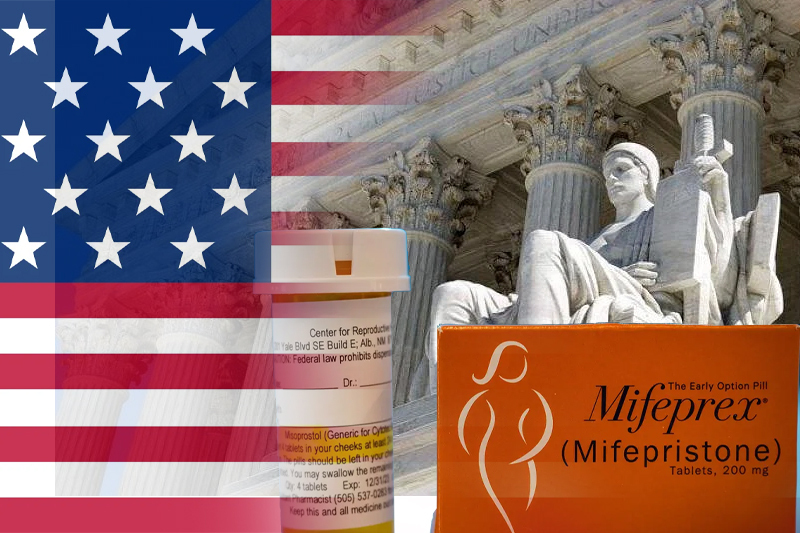
All you need to know about the ongoing battle over abortion pill mifepristone in US
The US Supreme Court on Friday ruled to block lower-court decisions that would have restricted access to mifepristone, an abortion pill used in over half of the procedure carried out in the country, while litigation continues.
The order has handed a victory to Democratic President Joe Biden’s administration as well as the drug’s manufacturer Danco Laboratories.
A number of Democrats and abortion advocates were quick enough to hail Friday’s decision, but they soon noted that it was just a temporary stopgap while the battle over mifepristone’s availability proceeded.
The abortion pill was approved by the Food and Drug Administration (FDA) in 2000 for use up to seven weeks of pregnancy. The government agency – responsible for determining how safe a medication is – later extended its use through ten weeks in 2016.
But a conservative judge in Texas earlier this month issued a ruling barring the sale of mifepristone from April 7. A coalition of anti-abortion medical providers had earlier filed a lawsuit challenging the agency’s approval of the drug, saying it’s unsafe.
Keep Reading
The case went before District Judge Matthew Kacsmaryk, a Donald Trump appointee, who ruled in favour of the group’s request for an injunction on the pill on April 7. The decision would have suspended mifepristone sales in the country as the court case continued.
The injunction would have further restricted access to abortion services in a country where scores of women have already lost or started experiencing diminishing access following the Supreme Court’s decision to overturn Roe v Wade.
Judge Kacsmaryk’s decision offered the Biden administration seven days to appeal before the ruling went into effect. In three days, the administration appealed and the case landed in an appeals court in New Orleans.
While on April 12, New Orlean’s 5th Circuit Court of Appeals passed a decision keeping the drug legal, it also upheld some of the restrictions from Judge Kacsmaryk’s ruling, such as allowing its use only up to seven weeks of pregnancy and preventing its delivery through the mail and instead requiring patients to arrange in-person doctor visits to receive the drug.
The Biden administration and mifepristone’s manufacturing company soon appealed that ruling to the Supreme Court to block the restrictions, resulting in Friday’s decision. But the fight over the pill’s access and other abortion services isn’t over yet.



